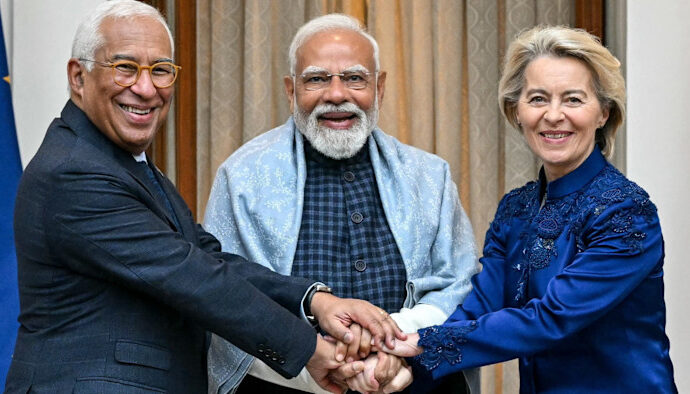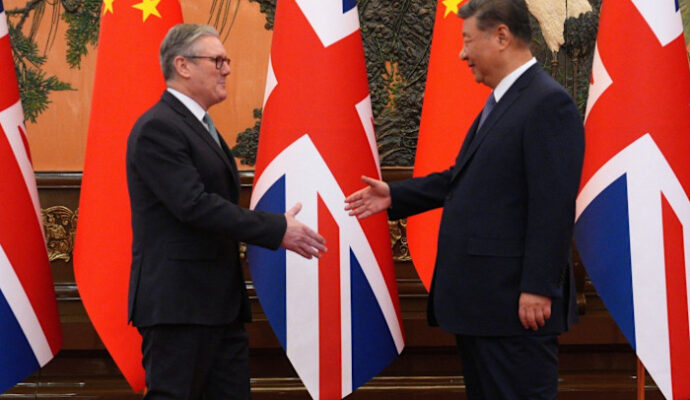Pakistan’s former prime minister Imran Khan can be held by an anti-corruption agency for eight days, a court ruled on Wednesday, as two of the country’s provinces called in the military to maintain order a day after his arrest sparked violent protests.
Opposition leader Khan, who spent Tuesday night in custody, was shown on Pakistani television appearing before a judge inside police headquarters in Islamabad. The court ruled he could be detained for eight days, short of the 14 days that government investigators had sought.
Authorities in Punjab and Khyber Pakhtunkhwa provinces on Tuesday requested the deployment of army troops to aid local authorities in quelling the unrest, a senior government official told the Financial Times, a day after Khan’s Pakistan Tehreek-e-Insaf party called for nationwide protests over his arrest.
The provinces, which account for about 70 per cent of Pakistan’s population, witnessed violent unrest following his arrest. In Lahore, a crowd set fire to the gates of a military general’s home on Tuesday. By Wednesday evening at least five people had been killed, newswires reported.
Officials at Pakistan’s main telecoms regulator said internet services and digital platforms including Facebook, Instagram, Twitter and YouTube were blocked in parts of the country. Local media reported that police in Islamabad were ordered to carry firearms on duty, while school and college exams were cancelled.
Khan, a former cricket star and the country’s most popular political figure, served as prime minister from 2018 until he was ousted by parliament in April last year in a no-confidence vote.
His party is the favourite to win elections in October this year, but he faces a barrage of legal challenges that could disqualify him from running. These include allegations of unlawfully selling gifts he received as prime minister and terrorism charges related to protests by his supporters.
His arrest by anti-corruption forces on Tuesday was related to a land purchase by a charitable trust controlled by Khan and his wife Bushra Bibi, Pakistan’s interior minister Rana Sanaullah told reporters.
Khan, 70, has dismissed the charges as politically motivated and maintains that his removal from office was the result of a western-backed conspiracy. He has campaigned across the country for snap polls, inflaming political tensions at a time when the country is mired in a severe economic downturn.
Analysts said the administration of Prime Minister Shehbaz Sharif, whose government is struggling to revive a $7bn IMF bailout, has resisted early polls, fearing a significant public backlash.
In March, the threat of Khan’s arrest sparked clashes between his supporters and police outside his residence in Lahore, while in November, he was shot in the leg at a political rally in Wazirabad, Punjab province, in what he has claimed was an assassination attempt by senior officials.
He reiterated that claim at a rally at the weekend, drawing strenuous denials from the military.
Leading business figures have warned that the latest unrest could delay negotiations with the IMF. The fund has sought more reforms before it disperses the next $1.1bn tranche of support, which could pave the way for additional loans that would allow Pakistan to forestall a balance of payments crisis. The country’s foreign reserves have dwindled to only about one month’s worth of imports, leading to shortages of essential goods.
“Under the present circumstances, how can anyone looking at Pakistan safely say that they are lending to a country which can run its affairs smoothly?” said one businessperson who asked to remain anonymous. “The ongoing uncertainty must end.”


